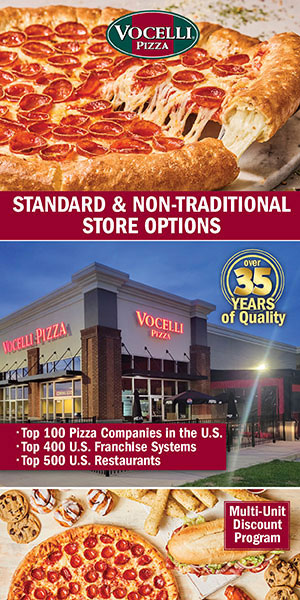Strapped Communities Balance Budgets with Private Security Policing
December 13, 2011 // Franchising.com // A decision made by the city of Foley, Minn., a community of nearly 3,000 residents, is causing shockwaves throughout the state…and is a sign of what is happening in communities across the country.
Effective January 2012, the Foley City Council announced the decision to replace the city’s longstanding, traditional police street patrol with 24-hour, private security patrols. Foley is setting a precedent as the first city in the state of Minnesota to make the move, which comes as the result of budget cuts. The city will save more than $10,000 per month by making the switch.
According to an October 2011 report from the Justice Department’s Community Oriented Policing Services (COPS) office, 12,000 police officers and sheriff's deputies nationwide could lose their jobs amid government budget shortfalls and cuts in a sluggish economy.
The city of Foley isn’t the only government entity utilizing private security as a cost-savings measure. Public universities and school districts are being forced to scrutinize where their precious budget dollars are going, as those budgets continue to dwindle from fiscal year to fiscal year.
The Octorara Area School District in Pennsylvania was faced with a tough decision prior to starting the 2011 school year. In the wake of budget cuts, the school would either have to lay off one of its teachers or sever its relationship with the Highland Police Department, which was responsible for the traffic control detail at the school crossing.
“The police department was charging us a higher hourly rate,” said Dr. Tom Newcome, superintendent of the Octorara Area School District. “We saw an opportunity to save money – and one of our teachers’ livelihoods – by making the switch to contracted, private security.”
Reed Nyffeler, chief executive officer of Signal 88 Security, confirms that in the last five years, Signal 88 – with more than 70 franchise offices nationwide – has seen more government entities and public institutions turning toward private security as a solution.
“We have seen a substantial percent increase in government contract accounts, including both traditional, year-round contracts as well as event-based agreements,” said Nyffeler. “We expect our government contract business to grow by incrementally over the next several years. The use of private security is certainly a trend that’s on the rise and one way communities are responding to having less money at their disposal.”
COPS believes partnerships between private security and law enforcement are an area ripe for maximizing community safety and addressing mutual goals.
According to COPS, the private security field spends more than $100 billion on security products and services every year. In contrast, federal, state and local law enforcement spend less than half that amount, shattering the public perception that the private security industry doesn’t invest in its guards or services.
“There are misconceptions that private security isn’t as valuable as more traditional forms of security, and that simply isn’t true,” said Nyffeler. “The physical and mental training our guards undergo, coupled with the fact that many are current or former law enforcement officers or military personnel, allows us to provide high-quality service.”
In Foley, the switch to private security will not replace the city’s police department, although it will change the way city streets are patrolled. The community’s private security company will not be able to enforce state laws or intervene in criminal matters. They cannot make criminal arrests but are able to make a citizen’s arrest. They cannot conduct traffic stops, issue search warrants, pursue suspects or investigate crimes.
When economics are the primary concern, sometimes it’s the law enforcement agencies themselves making changes in order to save dollars. In August 2011, the Detroit Police Department (DPD) issued a memo saying they will no longer respond to burglar alarm calls from monitoring companies unless the alarm is verified by a third-party.
According to the DPD, 98 percent of the alarm calls it receives are false. No longer responding to these calls without third-party verification is the department’s way of keeping more officers on the street.
“As the economy continues to remain flat and in many cities continues its decline, I think what the Detroit Police Department did could be adopted in other communities around the country,” said Nyffeler. “Communities cannot afford to go unpatrolled, but in many cases they cannot afford – with government budgets being cut from year to year – to maintain a traditional, often costly, law enforcement presence.”
According to an interview The Crime Report conducted with economist Simon Hakim, who directs Temple University’s Center for Competitive Government, the trend toward private security has been developing over a period of time.
In the 1970s, says Hakim, there were 40 percent more police than private security guards. By 2009, those positions had flipped, with about 60 percent more private guards than public officers.
The reason? Cost savings in the wake of economic distress. Government agencies with restricted budgets have started pushing for better security services at more affordable rates, according to an IBIS World Industry Report released September 2010 titled “Security Services in the U.S.”
“Some of our strongest relationships are supplemental to traditional law enforcement, when our guards have the opportunity to close the gap on potential safety concerns,” Nyffeler said. “Traditional law enforcement agencies are outstanding partners to the supplemental work we do. But we are a viable solution for government agencies that are looking to conserve dollars in the face of budget cuts.”
About Signal 88 Security:
Founded in 2003 by former law enforcement professionals, Signal 88 Security provides a wide variety of technologically enabled and advanced security services to public and private sector clients through more than 70 franchise offices nationwide. The company offers site and risk assessments, video monitoring and patrolling, and enhanced patrol services. Signal 88 Security specializes in business and commercial security as well as security for apartment complexes, home owner associations, shopping centers, events and more. Additional information can be found at www.signal88.com.
Contact:
Gina Pappas
888.296.2411 x.9
###
| ADVERTISE | SPONSORED CONTENT |
Franchise News
By Type
- Expansions & Growth
- Financial & Earnings Claims
- Mergers & Acquisitions
- Personnel Changes
- Conferences & Events
- Product Announcements
- Media Coverage
- Strategic Alliances
By Sector
| ADVERTISE | SPONSORED CONTENT |



 The franchise opportunities listed above are not related to or endorsed by Franchising.com or Franchise Update Media Group. We are not engaged in, supporting, or endorsing any specific franchise, business opportunity, company or individual. No statement in this site is to be construed as a recommendation. We encourage prospective franchise buyers to perform extensive due diligence when considering a franchise opportunity.
The franchise opportunities listed above are not related to or endorsed by Franchising.com or Franchise Update Media Group. We are not engaged in, supporting, or endorsing any specific franchise, business opportunity, company or individual. No statement in this site is to be construed as a recommendation. We encourage prospective franchise buyers to perform extensive due diligence when considering a franchise opportunity.